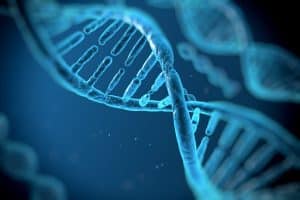Using DNA Evidence in Sexual Assault Cases

The bill will prevent police officers from searching the DNA database of sexual assault victims and any loved ones who submitted DNA samples to differentiate from the perpetrator. Should the bill be passed, the DNA samples of sexual assault victims cannot be used to incriminate victims in other crimes.
The importance of DNA samples in sexual assault cases
DNA evidence plays a crucial role in sexual assault cases. The presence of DNA evidence, or the lack of DNA evidence, can determine whether a sexual assault victim can even press charges. Law enforcement officials rely on the DNA analysis and testing to help identify the perpetrator of a sexual assault.
Common issues with prosecuting sexual assault cases
Law enforcement officials come across many issues when trying to charge a perpetrator with sexual assault. One of the biggest challenges is collecting DNA evidence that can assist with identifying the perpetrator. Law enforcement officials will request sexual assault victims to undergo a sexual assault forensic exam, or a rape kit, to help collect any DNA evidence that could have been left after the assault.
How is a sexual assault forensic exam performed?
The following steps are involved in a typical sexual assault forensic exam:
- Immediate assistance. The person performing the exam will treat any immediate injuries needing attention.
- History. The person performing the exam will ask the victim about their medical history, from any current medications they are taking to any pre-existing conditions. This is the step where victims will be asked difficult questions surrounding the nonconsensual sexual activity.
- Physical examination. The person performing the exam will examine the victim’s body from head to toe, as well as examine particular areas such as the vagina, anus, and mouth. Physical samples of hair, blood and urine will also be collected during this part of the process. Additional evidence, such as photos of the victim’s body and specific items of clothing, will be collected and packaged for further analysis.
- Mandatory reporting. This step of the process occurs when the victim is a minor. The person performing the exam is obligated to report the incident to the authorities.
- Follow-up care. The person performing the exam may offer prevention treatment for any sexually transmitted diseases and a follow-up medical appointment. The person performing the exam can also provide resources for follow-up care.
When police officers illegally use the DNA samples of sexual assault victims
Submitting a DNA sample to law enforcement officials is already difficult for sexual assault victims. After being sexually assaulted, victims may still be in a sense of shock and still processing the incident. There are also steps in the sexual assault forensic examination that are intrusive and uncomfortable. Victims may feel traumatized all over again while being examined.
Another reason why sexual assault victims may hesitate to submit DNA samples is because their samples may be used to incriminate them for future crimes by unethical police officers. Without the sexual assault victim’s knowledge, police officers have searched DNA databases for samples of sexual assault victims to connect them to other crimes.
In a way, this action is another violation towards the sexual assault victim. The police officer is not using the victim’s DNA sample to connect it to a potential perpetrator. Instead, the victim’s DNA sample is used without the victim’s consent for nefarious purposes.
Violations of a sexual assault victim’s rights
When police officers use samples of the sexual assault victim’s without their consent, they violate the victim’s Fourth Amendment rights. The Fourth Amendment prohibits law enforcement officials from performing unreasonable searches and seizures. In many incidences, sexual assault victims whose DNA samples have been linked to other crimes were connected to crimes that they did not even commit.
All DNA profiles of victims and potential perpetrators are stored in a national database known as the Combined DNA Index System (CODIS). The FBI relies on CODIS to connect the perpetrators of serious crimes like sexual assault and homicide using DNA profiles. Police officers are prohibited by federal law to upload a sexual assault victim’s DNA sample into CODIS. However, some local police departments design their own DNA databases outside of CODIS to collect and store the DNA samples of sexual assault victims.
Are there any California laws that prohibit police officers from storing DNA samples?
Currently, there are no state laws that prevent police officers from collecting and keeping the DNA samples of sexual assault victims. Because federal government agencies are not aware of the presence of additional DNA databases in police departments, these DNA databases are unregulated. Police officers can use a sexual assault victim’s DNA samples to accuse them of crimes they did not commit, or use the samples to question minors for specific crimes. With the passing of Senate Bill 1228, sexual assault victims will have genetic privacy over their DNA samples.
Taylor & Ring offers comprehensive counsel to personal injury, sexual abuse and sexual harassment victims in Los Angeles and across Southern California. We provide a safe space for you to tell your story and discuss your goals and needs. To find out more about what we can do for you, or to schedule a free and confidential consultation, call our office at 310-209-4100, or complete our contact form.
Related Sexual Abuse and Assault Content
- John Taylor & Brendan Gilbert Fighting for Victim of Sexual Abuse by Hamilton High School Teacher
- Shades of Larry Nassar: a USC Doctor Abused Students for Almost 30 Years
- New Title IX Rules Go Into Effect in August – What They Are and How They May Affect You
- If You Have Signed an NDA, Can You Report a Sexual Assault?
- North Monterey County Teacher Arrested for Sexual Assault of Former Student
- Former Athletic Trainer Charged with Sexually Assaulting 10 Students at Two LAUSD-Affiliated Schools
- Sexual Abuse of Minors in the Entertainment Industry
- Mario Batali Acquitted of Sexual Assault
- Trevor Bauer Won’t Face Criminal Charges
- Snoop Dogg Accused of Sexual Assault
- Taylor & Ring Secures $102M Verdict in Sexual Assault Lawsuit Against Union School District
- Marilyn Manson Under Investigation for Assault
- USC Fraternity Sigma Nu Facing Accusations of Drugs, Sexual Assault

David Ring is a nationally renowned plaintiff’s personal injury trial attorney and has obtained multi-million dollar verdicts and settlements on behalf of seriously-injured individuals or families who have lost a loved one in a tragic accident. For more than 20 years, he has represented victims of sexual abuse, sexual harassment, assault, molestation and sexual misconduct in cases against a variety of employers and entities, including schools, churches and youth organizations.
He prides himself on providing aggressive, yet compassionate representation for children who have been sexually abused and women who have been sexually harassed or assaulted. Read more about David M. Ring.

